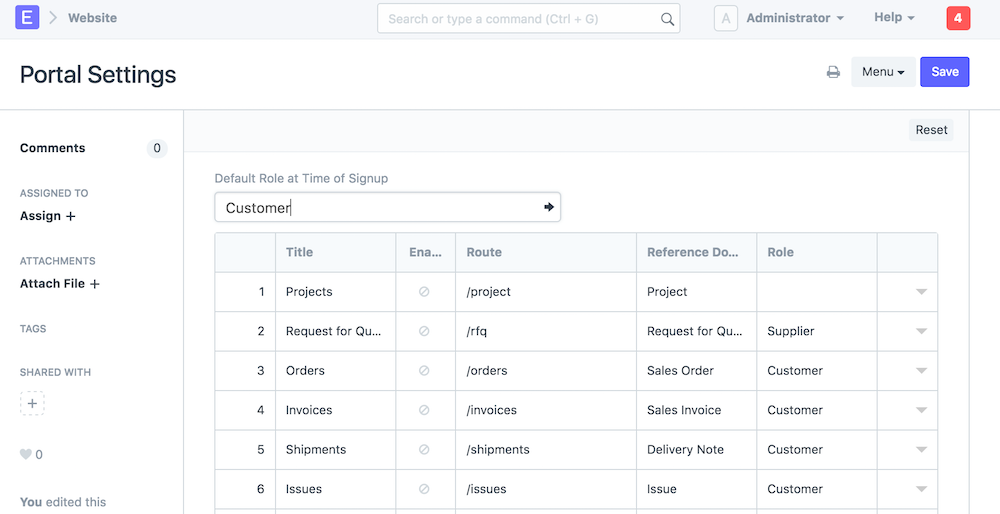Introduction
In the Empress software, the feature Role-Based Menu Visibility and Customization allows developers to assign roles to website users and then customize the visibility of the portal menu based on these roles. This feature enhances the user experience by presenting only the relevant menu items to the user based on their role, thereby reducing clutter and improving navigation efficiency.
Setting Default Role in Portal Settings
A default role can be set in Portal Settings. This role is assigned to users by default when they create an account or log into the website. The default role determines the basic visibility and accessibility of the portal menu items for a user.
To set a default role, navigate to the ‘Portal Settings’ in the admin dashboard.

Associating Roles with Portal Menu Items
Each item in the portal menu can have a role associated with it. If a role is set for a menu item, only the users who have that role will be able to see that menu item. This allows for a great deal of flexibility and customization in managing the visibility of menu items.
For instance, a menu item for ‘Supplier Payments’ might only be visible to users with the ‘Supplier’ role.
Establishing Rules for Default Roles
Developers can set rules for default roles that will be assigned to users under certain conditions. These rules can be set in the hooks of the application.
For example, if the email address of a user matches with a contact id, the system can automatically assign the role ‘Customer’ or ‘Supplier’ to that user.
The code snippet for setting these rules is as follows:
default_roles = [
{'role': 'Customer', 'doctype':'Contact', 'email_field': 'email_id',
'filters': {'ifnull(customer, "")': ('!=', '')}},
{'role': 'Supplier', 'doctype':'Contact', 'email_field': 'email_id',
'filters': {'ifnull(supplier, "")': ('!=', '')}},
{'role': 'Student', 'doctype':'Student', 'email_field': 'student_email_id'}
]
In this code, the ‘role’ key specifies the role to be assigned, the ‘doctype’ key specifies the document type that is to be checked, the ‘email_field’ key specifies the field where the email is stored, and ‘filters’ specify the conditions under which the role is to be assigned.
Summary
The Role-Based Menu Visibility and Customization feature in Empress empowers developers to enhance the user experience by providing personalized navigation options to the users. By correctly utilizing this feature, developers can significantly streamline the user interface, making it more user-friendly and efficient. Furthermore, this feature allows for a more secure and organized system design, where each user role has access to only the necessary and relevant parts of the application.